

Uh oh...
It appears that you're using a severely outdated version of Safari on Windows. Many features won't work correctly, and functionality can't be guaranteed. Please try viewing this website in Edge, Mozilla, Chrome, or another modern browser. Sorry for any inconvenience this may have caused!
Read More about this safari issue.

They arrived in small towns and cities in a station wagon emblazoned with their team’s name, Hazel Walker’s Arkansas Travelers. They took on men’s basketball teams, played by men’s rules, and they won more than 80% of their games. After the game, the seven or eight young women loaded back in the station wagon and headed for the next night’s game, in another packed high school gym, against another local team of insurance salesmen, farmers, and teachers. Life on the road as barnstorming basketball vagabonds was the only professional women’s basketball available in the middle of the 20th century. The driver, coach, star player, and owner was Hazel Walker of Ashdown, Arkansas. In a world without professional sports for women, Hazel Walker and her traveling basketball pioneers, “Found a way to play.”
After what historian Jim Rasco described as “several false starts,” the Arkansas Sports Hall of Fame introduced the institution’s first inductees on January 15, 1959. A state hall of honor had been discussed both officially and unofficially since early in 1951, but the fledgling organization’s first “class” would forever carry an additional distinction as the Arkansas Sports Hall of Fame Inaugural Honorees.
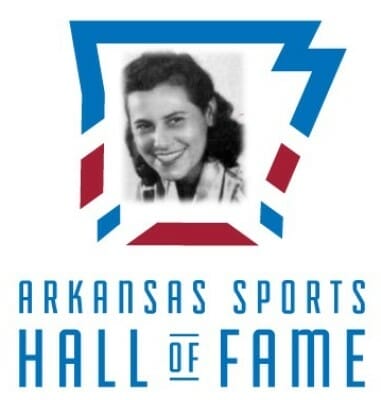
When the votes were tabulated on December 21, 1958, the five charter members of the ASHOF would set a precedent for selections from all corners of the state and a variety of sports. Baseball Hall of Famer Bill Dickey of Kensett was chosen along with Arkansas Razorback football stars Wear Schoonover and Jim Lee Howell and legendary Hendrix coach Ivan Grove. All were revered and highly respected men who exemplified the criteria for induction. Not surprisingly, they were joined by the most distinguished Arkansas female athlete of the first six decades of the 20th century, a 45-year-old basketball legend named Hazel Walker, the owner/star of Hazel Walker’s Arkansas Travelers.
Hazel Leona Walker was born in Little River County, Arkansas, in 1914 and grew up on a farm near the community of Oak Hill. By her ninth-grade year at Ashdown High School, young Hazel was a basketball prodigy. With Walker and a formidable supporting cast, the Ashdown Pantherettes of the early 1930s became one of the state’s premier girls’ basketball programs.

In March of 1932, Walker’s senior year, the Ashdown girls reached the finals of the first Arkansas Athletic Association High School State Tournament. The tournament was held at the Little Rock Boys Club in conjunction with the women’s state AAU finals. After defeating Union High School in the semifinals, Ashdown lost 33–24 to Casa in the championship game. Walker was named to the All-State team and selected the “Most Beautiful Player” in the tournament.
Perhaps in 1930s Arkansas, the final game of Hazel Walker’s high school career should have marked the end of the 18-year-old’s basketball life, but faced with that unpleasant reality, she found a new way to play.
College women’s basketball programs were almost non-existent, but a few schools fielded women’s teams and competed under the auspices of the American Athletic Union. Walker accepted a partial scholarship from the Tulsa School of Business and starred for a team called the Tulsa Business Stenos. Walker won her first National AAU Women’s Championship with the Stenos in 1934.
After two years at Tulsa, Walker returned to Arkansas to work for Lion Oil in El Dorado and play for the Lion Oilers AAU team. While in El Dorado, 20-year-old Hazel Walker married a railroad brakeman named Eugene Crutcher.
When Lion Oil discontinued its sponsorship of an AAU team, the Crutchers moved to Little Rock, where Hazel would enjoy some of her most successful AAU campaigns playing for the Lewis & Norwood Flyers. In five seasons, the Flyers lost only eight games and won three National AAU Championships.
Hazel Walker Crutcher’s time in Little Rock was a period of great success and personal tragedy. On August 20, 1940, prior to the beginning of the 1940-1941 season, the Arkansas Gazette reported that Eugene Crutcher had been killed in a railroad accident in Pomona, California. The article stated that Crutcher, “Was struck by a cut of cars while on duty.”
The Flyers had won their second national AAU title the previous March and would go on to win the 1941 National Championship. When the team’s coach, William Dunaway, joined the Navy during the troop buildup at the beginning of World War II, the Flyers disbanded. Walker remained in Little Rock and played for the Arkansas Motor Coaches and Dr. Pepper Girls for the next five seasons.
In 1946, Walker made the life-changing decision to try a career on the road in the only women’s professional basketball available. Once again, faced with leaving basketball behind, Hazel Walker found a new way to play. She turned pro.
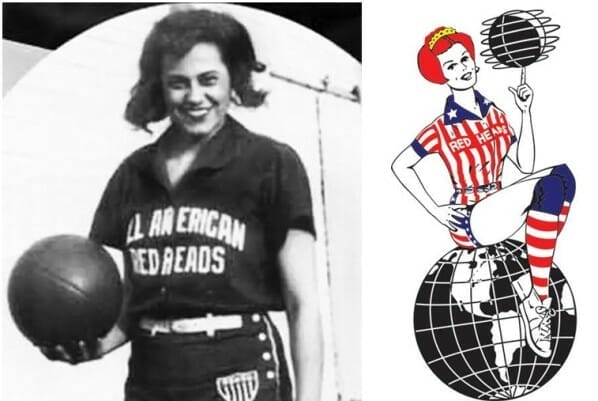
At age 35, a time when most professional basketball players consider retirement, Hazel made a new start. She joined the All-American Red Heads, coached by Orwell Moore of Caraway, Arkansas. While the Red Heads were a popular attraction barnstorming against men’s teams, their Globetrotter antics did not suit Walker’s style. Preferring a more serious and competitive philosophy, she formed the Hazel Walker’s Arkansas Travelers in 1949.
For the next 16 years, Hazel Walker’s barnstormers would play more than 200 games a year. The Travelers included some first-half comedy routines to entertain the crowd, but the second half was usually all business. Especially when the opponents did not want to be part of the show.
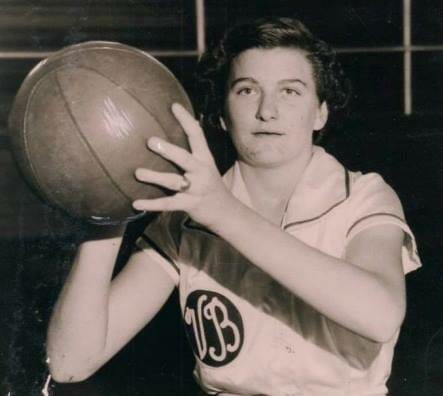
Francies Garroutte
Longtime Travelers’ star Francies Garroutte recalled a game in Mississippi when their opponent was overly concerned about “getting shown up by girls.” At the half, Walker told the team, “They wanna play ball? Ladies, let’s show them how to play ball!” The Travelers won handily.
Garroutte was featured prominently in a 2020 Mid-America Emmy-winning PBS Sports Short titled Hazel Walker’s Arkansas Travelers. Francies Garroutte, a former Van Buren High School star, joined Walker in the Arkansas Sports Hall of Fame in 1991.
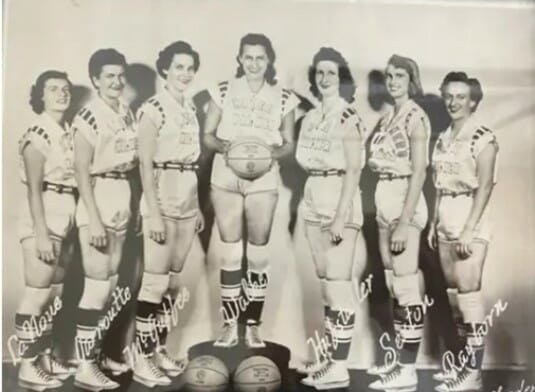
Stories of Hazel Walker’s amazing skills were part of her remarkable career. She once made 49 of 50 free throws to become the International Free Throw Champion. At half-time of her games, she challenged local hot-shots to a shooting contest. She shot from a sitting position, kneeling, and standing. Garroutte claimed, “I never saw her beat!”
Not all the tales of Walker’s athletic legend came on a basketball court. While living in Little Rock, she walked into her living room to see a man leaving her apartment with her purse. Despite the thief’s head start, Walker chased the robber for more than a block, tackled him, and took back her money. “I had a rock in my hand, but decided not to use it,” Walker told the Arkansas Gazette. According to the reporter, “The thief never had a chance.”
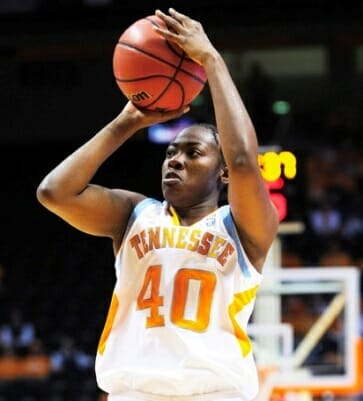
Shekinna Stricklen, Arkansas Sports Hall of Fame, 2023
During a career that spanned 37 years, Hazel Walker banged unceasingly at the door to opportunities for girls and women in sports. Today, thanks to the pioneering courage and determination of women like Hazel Walker, female athletes have more avenues to find a way to play. On April 14, 2023, Shekinna Stricklen, of Morrilton High School and the University of Tennessee, will join women like Hazel Walker in the Arkansas Sports Hall of Fame.
Author’s note: I saw Hazel Walker’s Arkansas Travelers at the old WPA gym in Ozark, Arkansas, on October 8, 1962. Do any readers have a story?
Special thanks to Jim Rasco and Terry Conder Johnson of the Arkansas Sports Hall of Fame for their help on this project. Thanks also to Gary Newton, whose excellent biography of Hazel in the Encyclopedia of Arkansas served as a valuable resource.
Join the Conversation
Leave a Comment
2 responses to “Hazel Walker: Finding a Way to Play”
 Leave a Reply
Leave a Reply
We do the work.
You check your email.
Sign up for our weekly e-news.
Get stories sent straight to your inbox!


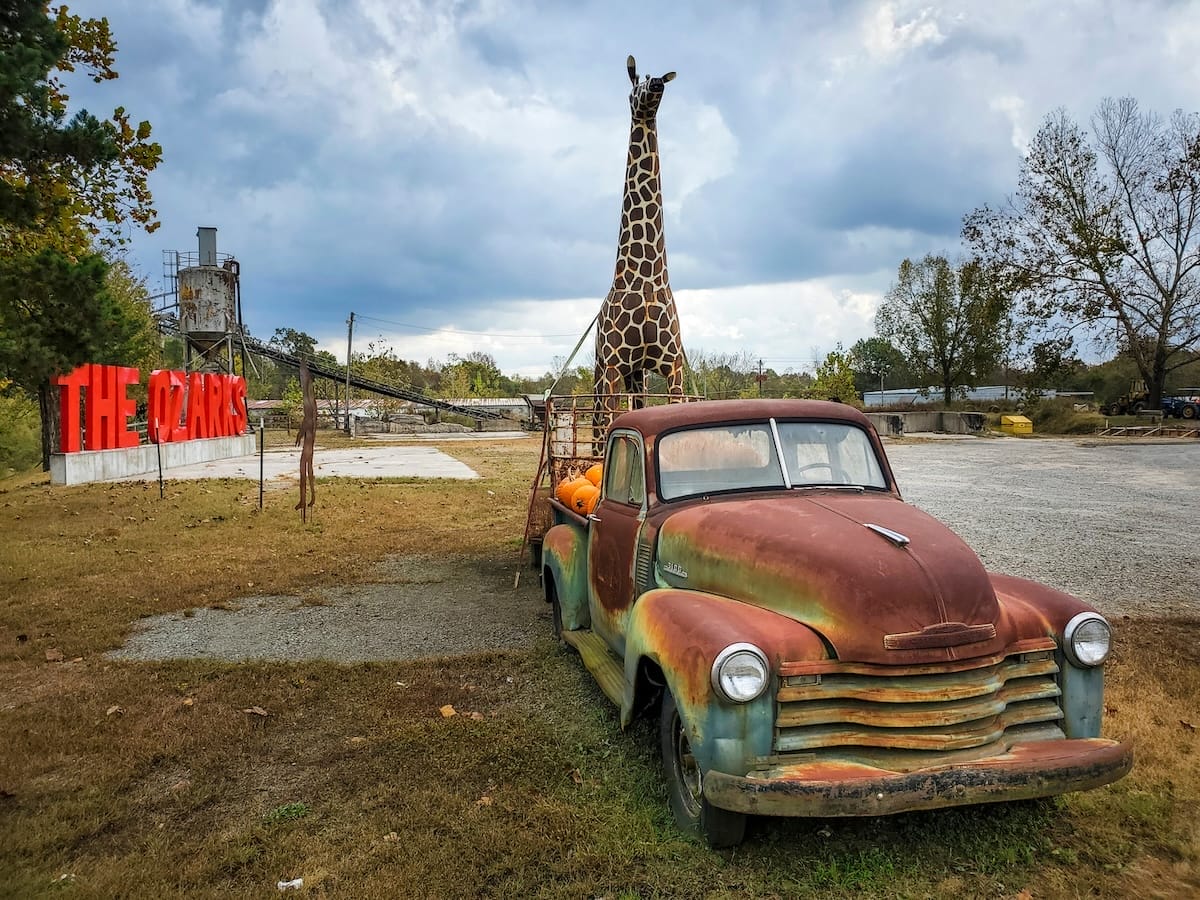







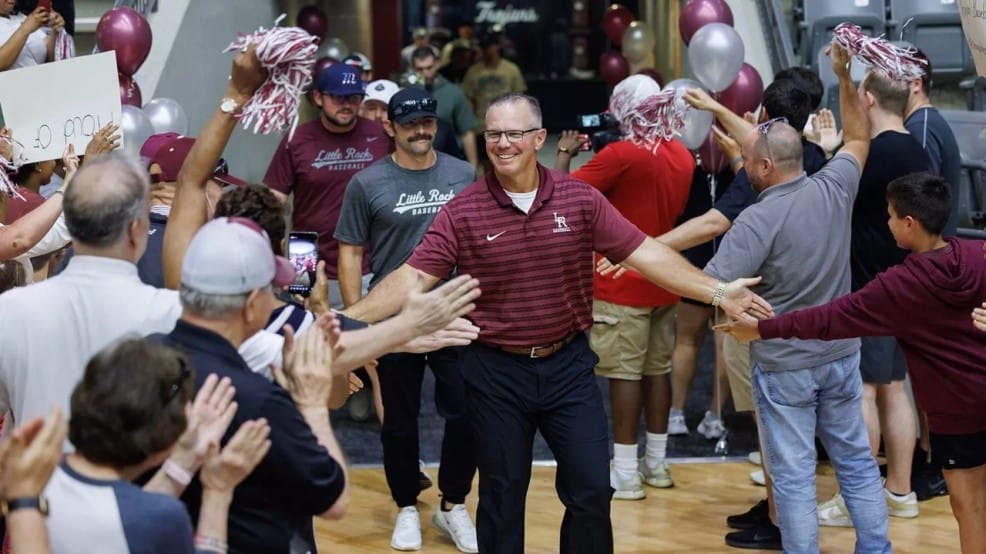

 Leave a Reply
Leave a Reply
[…] click here. Here are a few of my favorites: Schoolboy and Edna Rowe: A Baseball Love Story Hazel Walker: Finding a Way to Play A Tribute to Brooks Robinson, A Ball Player Named […]
Hazel Walker is my distant cousin, my Mother’s 2nd cousin. When she was traveling, she would stop in their little town on Delhi, La to visit my Mom and family and would always try to get my Granfather to let my Mom tag along with the team. Even though I never met her, she was an inspiration to all of the women in her family that came after her. We all are avid basketball players!! What a blessing to have a woman who paved the way for others!